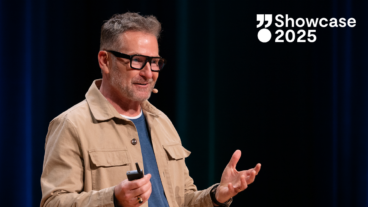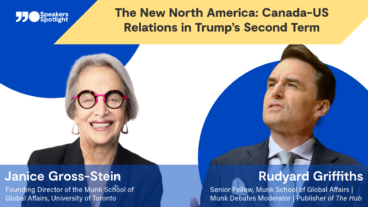The political landscape has been anything but predictable in 2025. As we head into what promises to be a consequential fall season, understanding the shifting dynamics has never been more important.
To help decode these complex times, we’ve assembled a distinguished panel of political veterans, policy experts, and strategic thinkers for our “fall political report card”. Our esteemed lineup of experts includes former Deputy Prime Minister Jean Charest, former Premier Christy Clark, former Premier Andrew Furey, renowned global affairs expert Janice Gross Stein, former US Ambassador to Canada David L. Cohen, economist Todd Hirsch, and business futurist Doug Stephens.
Each brings a unique perspective shaped by years of experience at the highest levels of government, diplomacy, academia, and business strategy. Together, they provide a comprehensive assessment of where Canada stands today, identify the key developments and trends to watch in the coming months, and offer practical, actionable advice for leaders seeking to navigate the challenges and opportunities ahead.
Their collective wisdom offers both strategic insight and tactical guidance for anyone looking to understand and respond to today’s turbulent political landscape.
Federal Budget: Catalyzing Growth Through Strategic Partnership
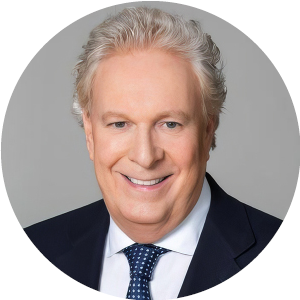
The Hon. Jean Charest
Former Deputy Prime Minister of Canada and Premier of Québec
Things to watch in the fall is the federal budget. This is particularly important for the Carney government as it’s their first budget and there will be a lot to read between the lines.
The Carney government has two objectives. The first is to make Canada the most prosperous G7 country and the second is to make Canada an energy superpower. Carney has been moving rapidly to meet these objectives — bill C5. With Carney’s vision laid out and tools chosen, we’re now at the operationalize phase.
There are two words to watch this fall, the first being “catalyze”. Carney likes and uses this word a lot. What it means is that the federal government is taking a different role. They will allow the private sector to drive, while helping to push projects along through finance and regulation that accelerates vs. inhibits. The second word is a new acronym — PONI (Projects of National Importance). That’s what the Carney government is shopping for right now, from the provinces, the private sector, First Nations, etc.
In terms of Canadian business leaders, they’ll be focused on how to maintain trade relationships, especially as we watch the revisiting of CUSMA. There will also be an issue of taxes, largely because Canada is outbid by US in attracting global investment and an increase in defense spending. Third is immigration, we’ve overextended our immigration policy and there’s now confusion on how we attract foreign workers and students. Fourth is federalism, we’ll see more government interaction with provinces than the last 20 years as Carney needs the full engagement of all provinces to fulfill his vision.
My advice for leaders heading into the fall is to secure their relationships with American partners. Secondly, look at your long-term needs for human resources. You may have to do things differently to keep your people by offering them training opportunities, and different packages and advantages. Lastly, look at your area of work and how it interacts with the priorities of the government — defense, energy, and infrastructure.
The Honourable Jean Charest has served at the highest levels of Canadian government for nearly three decades, making him one of Canada’s best known political figures. As the former Deputy Prime Minister of Canada and Premier of Québec — and a current member on the Prime Minister’s Council on Canada-US Relations — Charest brings a deep understanding of the complex Canada-US relationship, global trade, strategic leadership, and business diplomacy to audiences.
Trade Tensions: Preparing for US Uncertainty
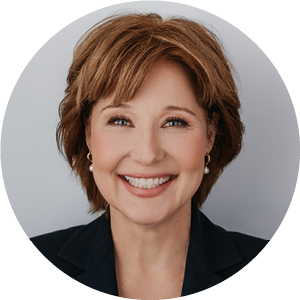
The Hon. Christy Clark
35th Premier of British Columbia
2025 has been a bumpier road than most expected. Compared to other countries, the trade between Canada and the US is so much greater and of fundamental importance to both economies. We aren’t just trading — auto parts go back and forth across the border six times — we are collaborating. America doesn’t have that relationship with any other country in the world.
Looking ahead to the fall, I’m watching inflation in the US and the potential for a recession there. This is my number one concern because we all know if America catches a cold, Canada contracts the flu. Secondly, I’ll be watching the CUSMA review. The Americans were already talking about this master review as a renegotiation for six months before the last election. They strongly hold the review as a full renegotiation of CUSMA. I’ll be watching how review, renegotiation, whatever it turns out to be, how deep this will go and how much change this will bring.
For leaders, we need to focus on raising confidence and investment from overseas to diversify investment in our economy, and we need to focus on making sure that we are, and our governments are, enabling the private sector to get things done. Governments don’t create wealth, but they do inhibit the creation of wealth. The business community needs to be resolute in making sure the government reduces the barrier to growth in this country, we need investment. We have things the US desperately needs, they need critical minerals, oil, gas, etc. There is a huge opportunity to attract investment around the world, and create jobs and business opportunities, but it depends on our government’s ability to get out of the way and enable rather than inhibit.
The Honourable Christy Clark is the longest-serving female Premier in Canadian history. She served as Premier of British Columbia for over six years, in which BC achieved the lowest unemployment rate in Canada, balanced five consecutive budgets, and built a strong foundation for long-term prosperity.
A dynamic and results-driven leader, Christy brings battle-tested strategies for economic growth, candid insights on breaking gender barriers, and a bold vision for Canada’s place in a changing world order.
Steady Leadership: Countering Weaponized Uncertainty

The Hon. Dr. Andrew Furey
14th Premier of Newfoundland and Labrador | Orthopaedic Surgeon | Humanitarian
When did uncertainty become weaponized? In recent months, it has clouded the once amicable relationship between Canada and the United States, particularly around tariffs and trade policy. We all know the source. It’s due to a President with a loudly territorial, imperialistic agenda focused on remaking a one-country-centric world order.
Shifts in Washington’s priorities, coupled with growing protectionist rhetoric, have left Canadian businesses wary of sudden changes that could impact key sectors like manufacturing, agriculture, and energy. President Trump’s repeated verbal attacks on Canada — questioning our trade balance, threatening punitive tariffs, and casting doubt on long-standing agreements — have only enhanced that uncertainty.
In this environment, having strategic, steady leadership is essential. Beyond the economic and fiscal implications, these are attacks on Canadian values and our sovereignty. Prime Minister Mark Carney inherited a hornet’s nest. Yet, from the get-go, he has been navigating these challenges with a banker’s attention to detail and calm-to-quiet level of skill, advocating for Canadian interests while keeping an eye on the long-term stability of our economic relationship with the United States, beyond any one President. By combining a cool, measured approach with a firm defense of our trade interests, he is helping ensure Canada remains Canada: a trusted, competitive partner in an unpredictable era. It’s a smart move. It’s a shield against any weaponized uncertainty by mutual-assured instruction.
Regardless of industry, it is vital for leaders, like the Prime Minister, to remain rational and calm and acknowledge that some factors, such as the actions of Donald Trump, are beyond their control. Instead, they should focus on how their business can protect and grow its Canadian markets while actively pursuing diversification into new markets around the world. Managing supply chains will be challenging, but it will be essential for remaining competitive.
The Honourable Dr. Andrew Furey’s tenure as Premier of Newfoundland and Labrador was defined by decisive action under pressure. He shares essential leadership principles for navigating high-stakes environments and offers unique political insights into Canada-US relations, energy transformation, and healthcare innovation.
High Stakes Ahead: The Future of Canada-US Trade Relations

Janice Gross Stein
Founding Director of the Munk School of Global Affairs, University of Toronto
For Canadians, the stakes this coming fall could not be higher. On the table is the future of our trading relationship with the United States, our biggest export market.
It is not only whether Canada gets “the deal” that the United Kingdom, the European Union, and Asian allies have gotten — although I am not confident about how long these deals will last, at least it would help to level the playing field with our most important trading partner. Far more important is the future of CUSMA, the trade deal that Canada signed during the first Trump presidency. Today, that agreement shelters 90% of our exports from tariffs. The agreement is up for renewal in 2026, but the president may push for an earlier start and make demands that will be politically very tough as well as economically consequential for Canada to meet. What Canadian leaders should be watching in the fall is not only the future of our economy but of our federation.
Few people have a better understanding of global issues than Professor Janice Gross Stein. Her dynamic presentations provide a unique perspective into what’s really happening around the world — from China to Russia to the Middle East and Europe —and what it means to her audiences.
Strategic Diplomacy: Five Forecasts for Canada-US Relations
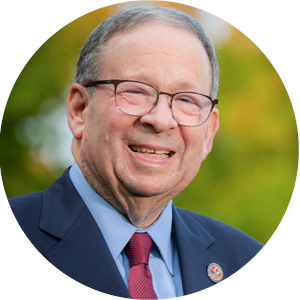
Ambassador David L. Cohen
Former US Ambassador to Canada
It’s important to remember right now that Canada is not alone — and is not being picked on. President Trump imposed tariffs on 60+ countries, most without any negotiations, and more than a few with considerably harsher tariffs than those imposed on Canada.
On the one hand, Canada should stand up for its sovereignty and value to the US. Don’t think of Canada as a “stepchild” (I hated hearing that from Canadians). Even if the President of the United States does not appear to recognize the value that Canada brings, many other elected officials, businesses, members of the press, non-profit leaders, and American citizens do.
On the other hand, we can’t overplay Canada’s hand given the size of the US economy. Many countries have learned the leverage that the US has in allowing access to the US economy. And most importantly, Canada can’t over-promise — its commitments must be deliverable and executable. Canada will need more than press releases and unachievable deliverables.
There are some opportunities for Canada here — many of which Prime Minister Carney is pursuing. Here are five ideas:
- Consistent messaging. It’s ok to be firm, but not necessary to be antagonistic.
- Don’t let a crisis go to waste. Use the difficulty of the times to get Canada’s own house in order.
- Redouble efforts to nurture and grow trade relationships with other countries.
- Redouble efforts to build relationships with governors, mayors, businesses, and other US stakeholders. Canada has many friends in the US and should look beyond the White House.
- Be careful with aggressive tactics (including the language used to describe the US and the President). Retaliatory tariffs and trade practices may be required but need to be used sparingly and carefully. The vastly different scale of the US market vis-à-vis Canada creates a huge imbalance and these tactics may have little to no impact on the US beyond creating excessive irritation.
In the end, I remain relentlessly optimistic and positive about the future of the U.S. Canada relationship. There are lots of reasons why it has been so strong and durable over a 150-year period.
A distinguished diplomatic leader and experienced corporate strategist, David L. Cohen served as the US Ambassador to Canada from 2021 to 2025. With extensive experience across business, law, government, and international relations, he delivers compelling perspectives on US-Canada relations, leadership excellence, and political dynamics.
Fiscal Crossroads: Budget Choices and Business Impacts Ahead

Todd Hirsch
Navigator of Economic Disruption | Speaker | Author
This fall, all eyes will be on the federal government’s budget. With increases in military spending, Ottawa will be forced to either 1) increase taxes, 2) cut spending elsewhere, or 3) increase the deficit. All three will have an impact on Canadian businesses.
For businesses, the worst case would be for the federal government to increase business taxes. Yet with Carney’s focus on stimulating business investment in the face of American tariffs, this seems unlikely.
Cuts to spending could mean fewer support programs for businesses, such as Export Development Canada. Increasing the deficit puts Ottawa onto an unsustainable fiscal path, which would put downward pressure on the Canadian dollar. That, in turn, would increase costs for businesses that import products or inputs.
For business leaders, the best strategy is to stay connected with your customers. Communicate with them. If you’re forced to increase prices, have trouble procuring inventory, or can’t meet their expectations for some other reason, help them understand the reason why the change has happened. They may be more understanding than you think.
Todd Hirsch is an internationally renowned economist, keynote speaker, and author whose research and work focuses on enhancing adaptability in an ever-changing world. He delivers dynamic, clear-eyed talks on adaptability, creativity, and resilience to help business leaders prepare for a future that is volatile, uncertain, complex, and ambiguous.
Economic Awakening: Canada’s Path to Commercial Independence
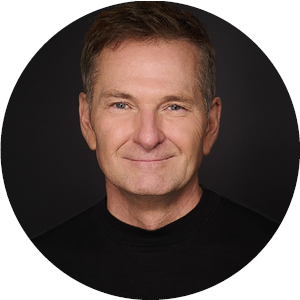
Doug Stephens
Business Futurist | Retail Expert
For many Canadians the psychological breaking point in our relationship came when Donald Trump made implied threats against our sovereignty. The irony however is that Canada was annexed commercially by the United States decades ago. We shop in American stores, we eat at American restaurants, we commune on American social networks, and we order from American online businesses.
I think the Prime Minister and his team recognize this and I’m pleased, thus far, that the Prime Minister is focussed on returning Canada’s economic destiny to Canadians. Breaking down interprovincial barriers to trade is a great start. Weaning off US dependency and expanding our commercial relationships with the EU and other nations is long overdue. What I would like to see are more incentives for homegrown Canadian companies, particularly in the consumer goods sector, to form, succeed and expand. Hudson’s Bay was a national loss, perpetrated by an American owner. In its place, and perhaps in its memory, we should look to foster dozens of other cutting edge retail brands that can serve Canadians and break the US consumer goods hegemony.
One thing is certain — this is not a “wait and see” situation for Canadian business. It’s an all-hands-on-deck moment. One in which I believe rewards will ultimately flow to those who step up to become part of the solution. I encourage every business leader to become intimate with the opportunities and challenges facing our country. And connect with local and provincial leaders to understand how your business, big or small, can lend its weight to keeping Canada strong!
Doug Stephens has been called “the futurist that futurists follow”. As one of the world’s foremost business futurists and retail industry experts, he decodes the forces reshaping commerce and translates them into strategic advantage.
Looking for Guidance to Navigate What’s Next?
As Canada’s political landscape continues to shift, expert analysis and guidance can make the difference between reactive scrambling and proactive leadership.
Contact us to learn more about our political experts and how they can help your organization stay ahead of the curve.


